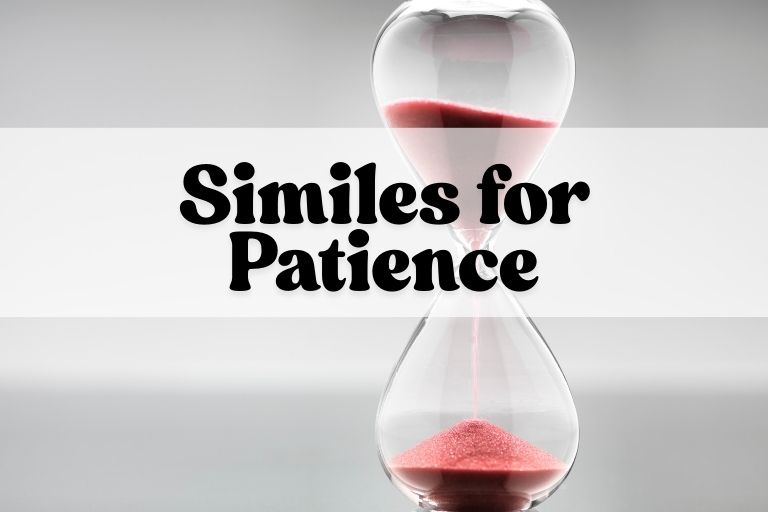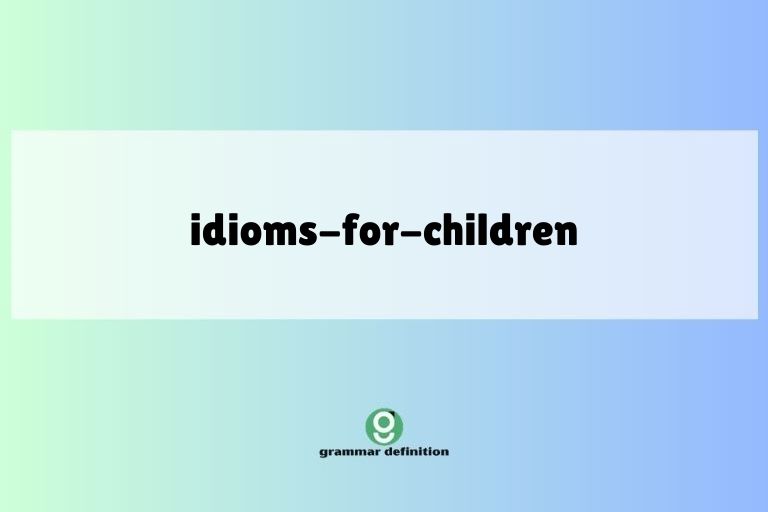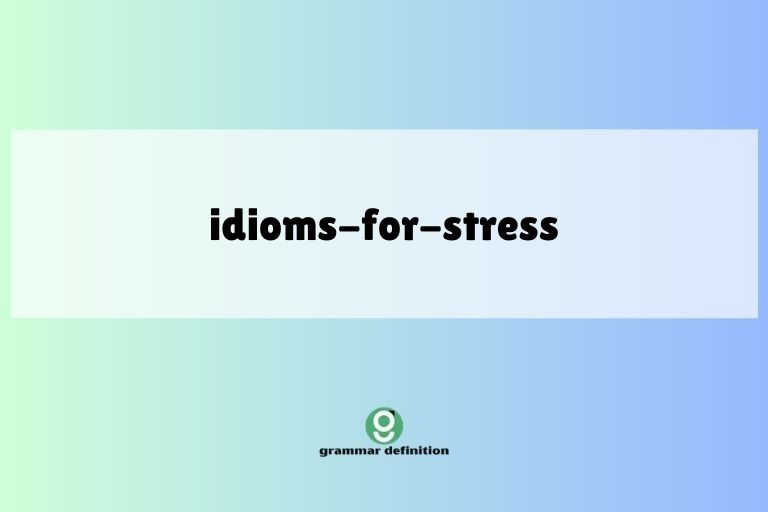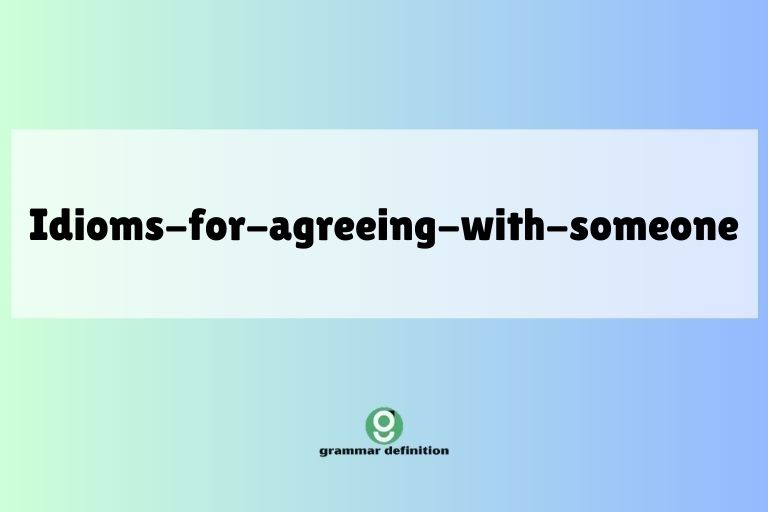Idioms For Funny Person: Mastering Humorous Expressions
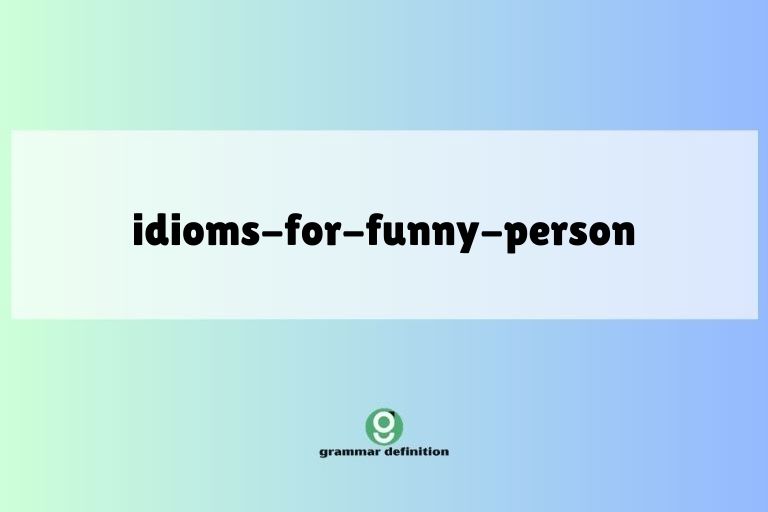
Understanding idioms related to humor and funny people is crucial for anyone looking to enhance their comprehension of English, particularly in informal and conversational contexts. These idioms often add color and depth to communication, allowing speakers to convey nuances that literal language cannot.
For English language learners, mastering these expressions can significantly improve their ability to understand jokes, appreciate humor in media, and engage in more natural-sounding conversations. This article will provide a comprehensive guide to idioms used to describe funny people, their meanings, and how to use them correctly.
Table of Contents
- Introduction
- Definition of Idioms for Funny Person
- Structural Breakdown of Idioms
- Types and Categories of Idioms
- Complimentary Idioms
- Neutral Idioms
- Slightly Negative Idioms
- Examples of Idioms for Funny Person
- Complimentary Idioms Examples
- Neutral Idioms Examples
- Slightly Negative Idioms Examples
- Usage Rules for Idioms
- Common Mistakes When Using Idioms
- Practice Exercises
- Exercise 1: Multiple Choice
- Exercise 2: Fill in the Blanks
- Exercise 3: Sentence Construction
- Advanced Topics: Nuances and Context
- Frequently Asked Questions
- Conclusion
Definition of Idioms for Funny Person
An idiom is a phrase or expression whose meaning cannot be understood from the literal meanings of its individual words. Instead, the phrase has a figurative meaning that is culturally understood by native speakers.
Idioms related to “funny person” are used to describe someone who is amusing, humorous, or entertaining. These idioms can be complimentary, neutral, or even slightly negative, depending on the context and the specific phrase used.
Understanding these idioms requires not only knowing their definitions but also recognizing the subtle nuances in their usage.
These idioms often rely on metaphorical language and cultural references to convey their meaning. They are a vital part of colloquial English and are frequently used in everyday conversations, literature, and media.
Mastering these expressions can significantly enhance one’s ability to understand and appreciate the subtleties of the English language.
Structural Breakdown of Idioms
The structure of idioms is often fixed, meaning that the words cannot be changed or reordered without altering the meaning or making the phrase nonsensical. Idioms can take various grammatical forms, including:
- Noun phrases: A barrel of laughs
- Verb phrases: Crack someone up
- Adjectival phrases: As funny as a barrel of monkeys
- Prepositional phrases: In stitches
Understanding the grammatical structure of an idiom is less important than understanding its overall meaning. However, recognizing the grammatical components can help learners remember and use the idiom correctly.
The key is to treat the idiom as a single unit of meaning rather than analyzing it word by word.
Types and Categories of Idioms
Idioms describing a funny person can be categorized based on their connotation or the degree to which they express humor. Here are some general categories:
Complimentary Idioms
These idioms express admiration or appreciation for someone’s humor. They often highlight the person’s ability to make others laugh and enjoy themselves.
Complimentary idioms are generally positive and can be used in a variety of social contexts.
Neutral Idioms
Neutral idioms simply describe someone as funny without expressing a strong positive or negative opinion. These idioms are often used in factual or descriptive contexts to identify someone’s characteristic trait of being humorous.
Slightly Negative Idioms
These idioms might imply that someone’s humor is excessive, inappropriate, or annoying. They suggest that the person’s attempts at being funny can be disruptive or irritating to others.
These idioms should be used with caution, as they can be offensive.
Examples of Idioms for Funny Person
Here are several examples of idioms used to describe funny people, categorized by their connotation. These examples will help you understand the meaning and usage of each idiom in context.
Complimentary Idioms Examples
The following table provides examples of complimentary idioms used to describe funny people. Each example includes the idiom, its meaning, and a sentence demonstrating its use in context.
| Idiom | Meaning | Example Sentence |
|---|---|---|
| A barrel of laughs | Someone who is very funny and entertaining. | John is a barrel of laughs; he always has everyone in stitches. |
| A real comedian | Someone who is naturally funny and entertaining. | My friend Sarah is a real comedian; she can always make me laugh. |
| A laugh a minute | Describing someone or something that is extremely funny and causes constant laughter. | Spending time with him is a laugh a minute; he always has a funny story to tell. |
| In stitches | Laughing uncontrollably. | His jokes had us all in stitches; we couldn’t stop laughing. |
| Crack someone up | To make someone laugh very hard. | His silly antics always crack me up, no matter how down I am. |
| As funny as a barrel of monkeys | Extremely funny. | That movie was as funny as a barrel of monkeys; I laughed the whole time. |
| Life of the party | Someone who is the center of attention and makes the party fun. | He’s always the life of the party with his jokes and stories. |
| A natural comedian | Someone who is funny without trying too hard. | She’s a natural comedian; her jokes are always spontaneous and hilarious. |
| Has a great sense of humor | Someone who understands and appreciates humor. | He has a great sense of humor and always knows how to lighten the mood. |
| Can always make you smile | Someone who has the ability to cheer you up. | She can always make you smile, even when you’re feeling down. |
| A witty person | Someone who is clever and funny. | She is a witty person, always ready with a clever remark. |
| A jovial fellow | A cheerful and friendly person. | He is a jovial fellow, always spreading cheer wherever he goes. |
| A riot | Someone who is extremely funny and entertaining. | He’s a riot; you never know what he’s going to say next. |
| A card | An amusing or eccentric person. | He’s such a card; he always does the unexpected. |
| A scream | Someone who is very funny. | She’s a scream; her stories are always hilarious. |
| One of a kind | Unique and special, often implying humor. | He’s one of a kind; his sense of humor is truly unique. |
| Always a good laugh | Someone who is consistently funny. | He’s always a good laugh; I enjoy spending time with him. |
| A delight to be around | Someone whose presence is enjoyable, often due to their humor. | She’s a delight to be around; her humor is infectious. |
| Brings joy to others | Someone who makes others happy through their humor. | He brings joy to others with his lighthearted jokes. |
| A ray of sunshine | Someone who is cheerful and brightens up any situation. | She’s a ray of sunshine, always making us laugh. |
| A comedian at heart | Someone who has a natural talent for comedy. | He’s a comedian at heart, always ready with a joke. |
| Has a knack for humor | Someone who has a special talent for being funny. | She has a knack for humor; her timing is perfect. |
| A gem | A valuable and delightful person. | He’s a gem; his humor makes him a great friend. |
| A treasure | Someone who is highly valued and appreciated. | She’s a treasure; her jokes always brighten my day. |
| Lights up the room | Someone who brings energy and happiness to a place. | He lights up the room with his jokes and stories. |
| Spreads cheer | Someone who makes others happy. | She spreads cheer wherever she goes with her infectious laughter. |
| A joy to watch | Someone whose performance or presence is enjoyable. | He’s a joy to watch on stage; he’s so funny and engaging. |
| Full of mirth | Someone who is full of laughter and happiness. | She’s full of mirth, always ready with a cheerful joke. |
Neutral Idioms Examples
The following table provides examples of neutral idioms used to describe funny people. These idioms simply state that someone is funny without expressing a strong opinion.
| Idiom | Meaning | Example Sentence |
|---|---|---|
| Has a sense of humor | Someone who is able to understand and appreciate humor. | He has a sense of humor, which makes him easy to get along with. |
| A funny guy/gal | Simply describing someone as funny. | He’s a funny guy; he always tells jokes. |
| Known for their humor | Someone who is recognized for being funny. | She’s known for her humor at the office; she always keeps things light. |
| Likes to joke around | Someone who enjoys making jokes. | He likes to joke around, so don’t take him too seriously. |
| Always cracking jokes | Someone who frequently makes jokes. | She’s always cracking jokes; it’s hard to have a serious conversation with her. |
| Has a playful personality | Someone who is lighthearted and enjoys being funny. | He has a playful personality, which makes him fun to be around. |
| A bit of a comedian | Someone who tries to be funny. | He’s a bit of a comedian, but his jokes don’t always land. |
| Has a lighthearted approach | Someone who deals with situations in a humorous way. | She has a lighthearted approach to life, always finding something to laugh about. |
| Enjoys a good laugh | Someone who appreciates humor. | He enjoys a good laugh and appreciates a well-told joke. |
| Finds humor in everything | Someone who can see the funny side of any situation. | She finds humor in everything, even when things are tough. |
| Inclined to be humorous | Someone who naturally tends to be funny. | He’s inclined to be humorous, often without even trying. |
| Has a funny bone | Someone who is easily amused and finds things funny. | She has a funny bone; she laughs at almost anything. |
| Known to be amusing | Someone who is recognized for being entertaining. | He’s known to be amusing, especially when telling stories. |
| A humorous individual | A general description of someone who is funny. | She’s a humorous individual, always making people smile. |
| Always telling stories | Someone who often shares funny anecdotes. | He’s always telling stories, and they’re usually quite funny. |
| Likes to tell jokes | Someone who enjoys telling jokes. | She likes to tell jokes, even if they’re a bit corny. |
| Has a knack for storytelling | Someone who is skilled at telling funny stories. | He has a knack for storytelling, always captivating his audience. |
| A fun person to be around | Someone who is enjoyable to spend time with due to their humor. | She’s a fun person to be around; her humor is infectious. |
| Often makes people laugh | Someone who frequently causes others to laugh. | He often makes people laugh with his witty remarks. |
| Has a cheerful disposition | Someone who is generally happy and humorous. | She has a cheerful disposition, which makes her humor even more appealing. |
| A lighthearted character | Someone who is not serious and enjoys being funny. | He’s a lighthearted character, always seeing the bright side of things. |
| Known for their wit | Someone who is recognized for their clever and funny remarks. | She’s known for her wit, always ready with a clever comeback. |
| Has a comical side | Someone who has a funny aspect to their personality. | He has a comical side that comes out when he’s relaxed. |
| A playful soul | Someone who is lighthearted and enjoys being funny. | She’s a playful soul, always bringing laughter to those around her. |
| Enjoys making others smile | Someone who likes to make people happy through humor. | He enjoys making others smile with his silly jokes. |
| Has a funny perspective | Someone who sees the world in a humorous way. | She has a funny perspective on life, always finding the humor in everyday situations. |
| A jovial personality | Someone who is cheerful and humorous. | He has a jovial personality that makes him a joy to be around. |
| Often makes humorous observations | Someone who frequently makes funny comments about things they observe. | She often makes humorous observations about the world around her. |
| A comical figure | Someone who is inherently funny or amusing. | He’s a comical figure, often without even trying to be. |
Slightly Negative Idioms Examples
The following table provides examples of slightly negative idioms used to describe funny people. These idioms suggest that someone’s humor might be excessive or annoying.
| Idiom | Meaning | Example Sentence |
|---|---|---|
| A bit of a clown | Someone who is overly silly or acts foolishly. | He’s a bit of a clown; he doesn’t take anything seriously. |
| Always trying to be funny | Someone who constantly seeks attention through humor. | She’s always trying to be funny, which can be exhausting. |
| Tries too hard to be funny | Someone who puts too much effort into being humorous, often unsuccessfully. | He tries too hard to be funny, and it often falls flat. |
| A wisecracker | Someone who makes sarcastic or witty remarks, often at others’ expense. | He’s a wisecracker, and his jokes can sometimes be hurtful. |
| A smart aleck | Someone who is irritatingly smug and sarcastic. | She’s a smart aleck; she always has a sarcastic comment to make. |
| A joker | Someone who is always making jokes, sometimes inappropriately. | He’s a joker, but his jokes aren’t always well-received. |
| A goofball | Someone who is silly and foolish. | He’s a goofball, always doing silly things to get attention. |
| A comedian wannabe | Someone who aspires to be a comedian but lacks the talent. | He’s a comedian wannabe, but his jokes are usually terrible. |
| A bit much | Someone whose behavior or humor is excessive. | His jokes are a bit much sometimes; he needs to tone it down. |
| Over the top | Someone who is excessively dramatic or humorous. | She’s over the top with her humor; it can be overwhelming. |
| A constant jokester | Someone who is always making jokes, often to the point of annoyance. | He’s a constant jokester, and it can be hard to have a serious conversation with him. |
| A bit of a show-off | Someone who tries too hard to impress others with their humor. | He’s a bit of a show-off, always trying to be the center of attention with his jokes. |
| Always seeking attention | Someone who uses humor to gain attention. | She’s always seeking attention with her jokes, which can be tiresome. |
| Tries to be the center of attention | Someone who uses humor to be the focus of attention. | He tries to be the center of attention with his jokes, but it doesn’t always work. |
| A bit annoying | Someone whose humor can be irritating. | His constant jokes are a bit annoying after a while. |
| Goes too far | Someone whose humor is inappropriate or offensive. | He sometimes goes too far with his jokes, which can be hurtful. |
| Lacks sensitivity | Someone who makes jokes without considering others’ feelings. | She lacks sensitivity in her humor, which can be offensive. |
| A bit insensitive | Someone whose jokes are sometimes hurtful or offensive. | He’s a bit insensitive with his jokes, often making inappropriate comments. |
| Always making inappropriate jokes | Someone who frequently tells jokes that are offensive or unsuitable. | She’s always making inappropriate jokes, which can be uncomfortable. |
| A bit of a pest | Someone whose humor is annoying and bothersome. | He’s a bit of a pest with his constant jokes and pranks. |
| A nuisance | Someone whose humor is irritating and disruptive. | His constant jokes are a nuisance, especially during serious meetings. |
| A bit disruptive | Someone whose humor interferes with serious situations. | He’s a bit disruptive with his jokes, making it hard to focus. |
| A bit childish | Someone whose humor is immature and silly. | His jokes are a bit childish, lacking sophistication. |
| Lacks maturity | Someone whose humor is immature and inappropriate. | She lacks maturity in her humor, often making silly and immature jokes. |
| A bit corny | Someone whose jokes are old-fashioned and predictable. | His jokes are a bit corny, but they still make some people laugh. |
| Always repeating the same jokes | Someone who tells the same jokes repeatedly, making them less funny. | He’s always repeating the same jokes, which gets old quickly. |
| A broken record | Someone who repeats the same jokes or stories over and over. | She’s like a broken record with her jokes; we’ve all heard them a million times. |
| A bit stale | Someone whose humor is no longer fresh or funny. | His jokes are a bit stale; he needs to come up with new material. |
| Outdated humor | Someone whose jokes are old-fashioned and no longer relevant. | She has outdated humor that doesn’t resonate with younger audiences. |
Usage Rules for Idioms
Using idioms correctly requires understanding their specific meanings and contexts. Here are some general rules to keep in mind:
- Context is key: Pay attention to the situation and the relationship between the speakers. Some idioms are appropriate in informal settings but not in formal ones.
- Audience awareness: Consider your audience. Some idioms may not be familiar to non-native speakers or people from different cultural backgrounds.
- Tone and connotation: Be aware of the emotional tone and connotation of the idiom. Some idioms can be offensive if used inappropriately.
- Grammatical structure: While the structure of an idiom is generally fixed, be sure to use the correct verb tense and subject-verb agreement.
- Don’t overdo it: Using too many idioms in a short period can make your speech sound unnatural or forced.
It’s also important to remember that idioms are not always directly translatable. Understanding the cultural context behind the idiom is essential for using it correctly.
Common Mistakes When Using Idioms
Here are some common mistakes that English language learners make when using idioms:
| Mistake | Correct | Explanation |
|---|---|---|
| Literal interpretation: “He is a barrel made of laughs.” | “He is a barrel of laughs.” | Idioms should not be interpreted literally. |
| Incorrect word order: “Laughs of a barrel.” | “A barrel of laughs.” | Idiom word order is fixed. |
| Misunderstanding the connotation: Using “a bit of a clown” in a formal setting to praise someone. | Using “a barrel of laughs” or “life of the party” in a formal setting to praise someone. | “A bit of a clown” can be seen as slightly negative. |
| Incorrect verb tense: “He cracks me up yesterday.” | “He cracked me up yesterday.” | Use the correct verb tense. |
| Mixing idioms: “He’s as funny as a barrel of laughs.” | “He’s as funny as a barrel of monkeys.” OR “He’s a barrel of laughs.” | Do not mix different idioms together. |
Being aware of these common mistakes can help you avoid errors and use idioms more confidently.
Practice Exercises
Test your understanding of idioms for funny people with these practice exercises.
Exercise 1: Multiple Choice
Choose the correct idiom to complete each sentence.
| Question | Options | Answer |
|---|---|---|
| 1. John is so funny; he’s always __________. | a) a pain in the neck b) a barrel of laughs c) a fish out of water | b) a barrel of laughs |
| 2. She’s the __________ at every party. | a) black sheep b) life of the party c) couch potato | b) life of the party |
| 3. His jokes had us all __________. | a) in the doghouse b) in stitches c) on cloud nine | b) in stitches |
| 4. He’s __________; you never know what he’s going to say next. | a) a dark horse b) a riot c) a busy bee | b) a riot |
| 5. She __________ with her silly antics. | a) kicks the bucket b) cracks me up c) beats around the bush | b) cracks me up |
| 6. He is __________, always making jokes. | a) a wet blanket b) a funny guy c) a tough cookie | b) a funny guy |
| 7. She has __________, always finding something to laugh about. | a) a lighthearted approach b) a hard time c) a heavy heart | a) a lighthearted approach |
| 8. He is __________, sometimes making jokes that are not well-received. | a) a wise owl b) a joker c) a lone wolf | b) a joker |
| 9. She is __________, always trying to be the center of attention. | a) a clean slate b) a bit of a show-off c) a bright spark | b) a bit of a show-off |
| 10. His jokes are __________, which can be hurtful at times. | a) a piece of cake b) a bit insensitive c) a breath of fresh air | b) a bit insensitive |
Exercise 2: Fill in the Blanks
Fill in the blanks with the correct idiom from the list below.
(a barrel of laughs, life of the party, in stitches, cracks me up, a bit of a clown, has a sense of humor, a funny guy, tries too hard to be funny, a wisecracker, a smart aleck)
| Question | Answer |
|---|---|
| 1. John is __________, always making everyone laugh. | a barrel of laughs |
| 2. She’s the __________ at every social gathering. | life of the party |
| 3. His stories always leave us __________. | in stitches |
| 4. His silly antics always __________. | cracks me up |
| 5. He’s __________, never taking anything seriously. | a bit of a clown |
| 6. She __________ and enjoys a good joke. | has a sense of humor |
| 7. He’s __________, always telling jokes. | a funny guy |
| 8. He __________, but his jokes often fall flat. | tries too hard to be funny |
| 9. She’s __________, making sarcastic remarks at others’ expense. | a wisecracker |
| 10. He’s __________, always having a smug and sarcastic comment. | a smart aleck |
Exercise 3: Sentence Construction
Use the following idioms in a sentence to describe a funny person.
| Idiom | Example Sentence |
|---|---|
| A natural comedian | She’s a natural comedian; her jokes are always spontaneous and hilarious. |
| Always a good laugh | He’s always a good laugh; I enjoy spending time with him. |
| A delight to be around | She’s a delight to be around; her humor is infectious. |
| Brings joy to others | He brings joy to others with his lighthearted jokes and stories. |
| A ray of sunshine | She’s a ray of sunshine, always making us laugh even on the cloudiest days. |
| A comedian at heart | He’s a comedian at heart, always ready with a joke and a smile. |
| Has a knack for humor | She has a knack for humor; her timing is always perfect. |
| Lights up the room | He lights up the room with his jokes and stories, making everyone feel welcome. |
| Spreads cheer | She spreads cheer wherever she goes with her infectious laughter and positive attitude. |
| A joy to watch | He’s a joy to watch on stage; he’s so funny and engaging, captivating the audience. |
Advanced Topics: Nuances and Context
For advanced learners, understanding the nuances and contextual implications of idioms is crucial. Some idioms may have different meanings depending on the region or social group.
Additionally, the use of idioms can be influenced by factors such as age, gender, and social status. For instance, an idiom that is common among younger generations may not be understood by older adults, and vice versa.
Moreover, the effectiveness of using idioms depends on the speaker’s ability to integrate them seamlessly into their speech. Overusing idioms or using them inappropriately can make the speaker sound unnatural or insincere.
Therefore, it’s important to develop a keen sense of when and how to use idioms effectively.
Exploring the etymology of idioms can also provide deeper insights into their meanings and cultural significance. Understanding the historical context behind an idiom can help learners appreciate its nuances and use it more accurately.
Frequently Asked Questions
- What is an idiom?
An idiom is a phrase or expression whose meaning cannot be understood from the literal meanings of its individual words. It has a figurative meaning that is culturally understood by native speakers.
- Why is it important to learn idioms?
Learning idioms is important because they are frequently used in everyday conversations, literature, and media. Understanding idioms can significantly enhance your comprehension of English and allow you to communicate more effectively.
- How can I learn idioms effectively?
You can learn idioms effectively by reading widely, listening to native speakers, and practicing using idioms in your own speech and writing. Flashcards and online resources can also be helpful tools.
- Are idioms the same in all English-speaking countries?
No, idioms can vary between different English-speaking countries and regions. Some idioms may be more common in one country than another.
- Can I translate idioms directly from my native language?
No, idioms are not always directly translatable. The meaning of an idiom is often culturally specific and may not have a direct equivalent in another language.
- Is it okay to use idioms in formal writing?
It depends on the context and the audience. In general, idioms are more appropriate in informal writing than in formal writing. However, some idioms may be acceptable in certain formal contexts.
- What should I do if I don’t understand an idiom?
If you don’t understand an idiom, you can ask a native speaker for clarification or look it up in a dictionary or online resource. Pay attention to the context in which the idiom is used to help you understand its meaning.
- How can I avoid making mistakes when using idioms?
To avoid making mistakes when using idioms, be sure to understand their specific meanings and contexts. Pay attention to the tone and connotation of the idiom, and use it appropriately for the situation and audience. Practice using idioms in your own speech and writing to become more confident in your usage.
Conclusion
Mastering idioms related to “funny person” is an essential step in achieving fluency in English. These expressions add color, depth, and nuance to communication, allowing speakers to convey humor and personality more effectively.
By understanding the definitions, usage rules, and common mistakes associated with these idioms, English language learners can significantly improve their comprehension and communication skills.

